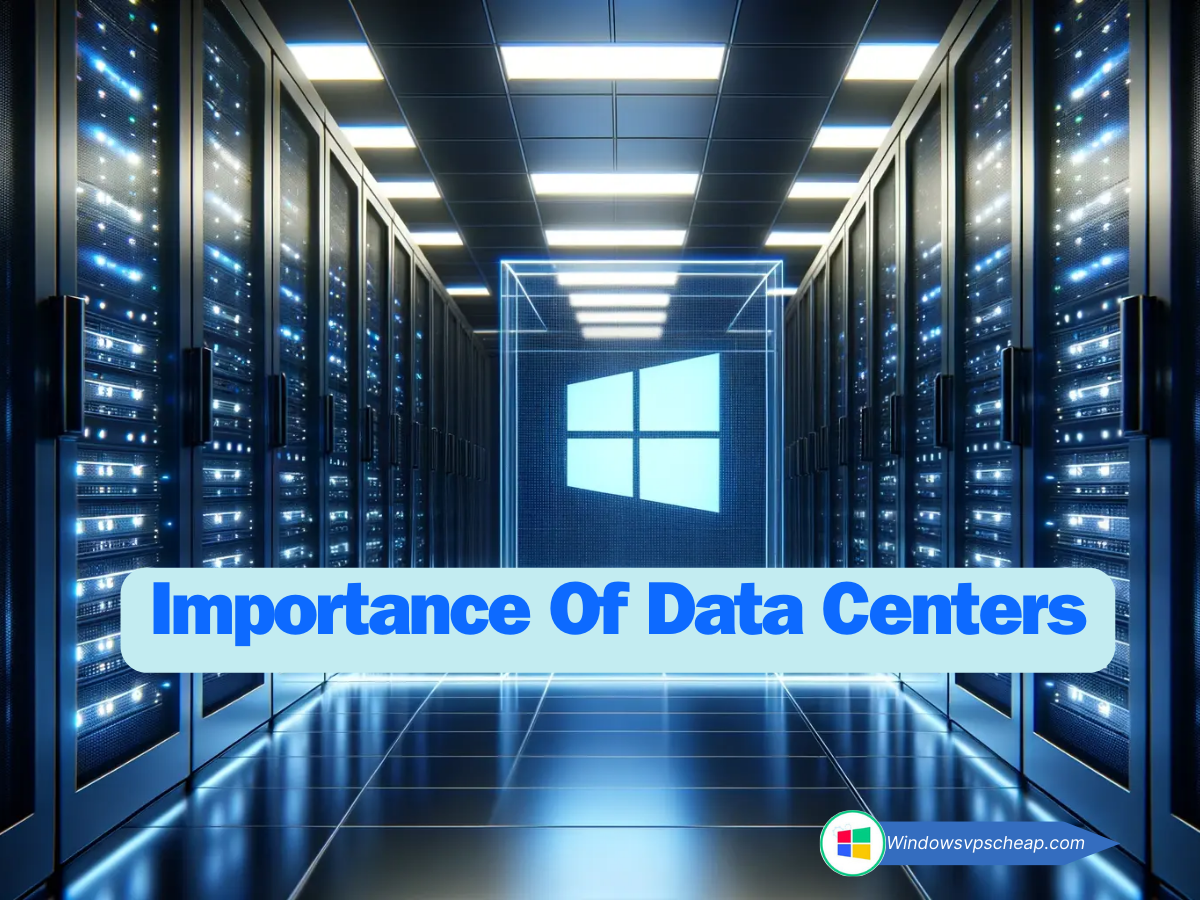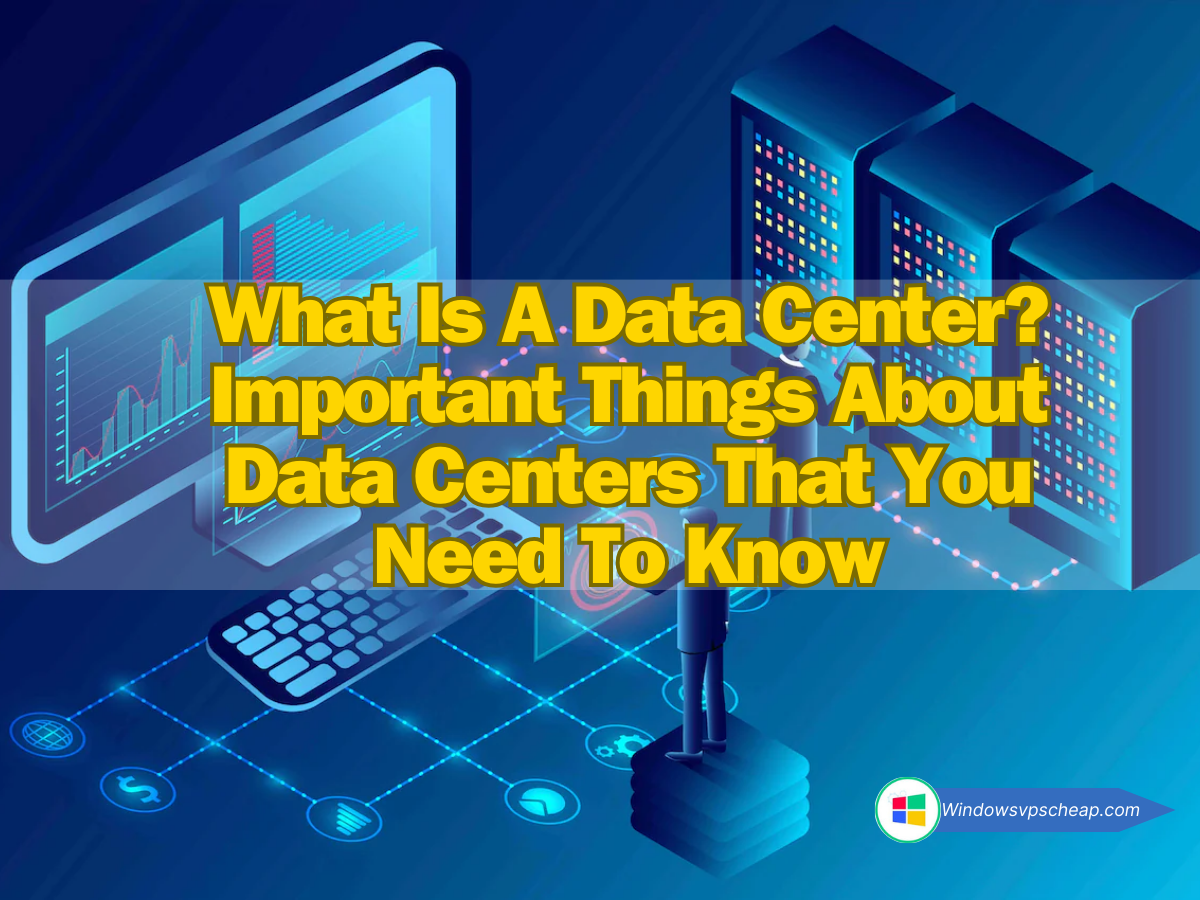In today’s digital age, data centers are the backbone of modern information technology infrastructure. They house the servers, storage systems, networking equipment, and other critical components that power everything from websites and online services to enterprise applications and cloud.
What is a Data Center?
A data center is a facility composed of networked computers and storage systems that businesses and organizations use to organize, process, store, and disseminate large amounts of data. These facilities are designed to support high levels of security, reliability, and scalability, ensuring that IT operations can run continuously without interruption.
Key Components of a Data Center
Servers: The heart of a data center, servers are powerful computers that store, process, and manage data. They can host applications, run databases, and provide web services.
Storage Systems: Data centers house various storage solutions, including hard drives, solid-state drives (SSDs), and network-attached storage (NAS), to store data securely and efficiently.
Networking Equipment: Routers, switches, and firewalls ensure that data can be transmitted securely and efficiently between servers and the external world.
Power Supply: Data centers require a stable and reliable power supply, often supported by uninterruptible power supplies (UPS) and backup generators to prevent downtime during power outages.
Cooling Systems: To prevent overheating, data centers employ sophisticated cooling systems such as air conditioning and liquid cooling to maintain optimal temperatures for hardware.
Security Measures: Physical security measures (like biometric access controls and surveillance cameras) and cybersecurity protocols (such as firewalls and encryption) protect data from unauthorized access and breaches.
Types of Data Centers
Enterprise Data Centers: Owned and operated by companies to support their internal IT operations and critical business applications.
Colocation Data Centers: These facilities lease space, power, and cooling to multiple customers who want to avoid the costs of building and maintaining their own data centers.
Cloud Data Centers: Operated by cloud service providers (such as AWS, Google Cloud, and Microsoft Azure), these data centers offer scalable, on-demand IT resources and services over the internet.
Edge Data Centers: Smaller facilities located closer to end-users to reduce latency and improve the performance of applications and services.
Importance of Data Centers
1. Business Continuity
Data centers ensure that critical applications and services remain operational even in the face of disruptions, such as power outages, natural disasters, or cyber-attacks. Redundancy and disaster recovery plans are integral to maintaining business continuity.
2. Scalability
Modern data centers are designed to scale easily, allowing businesses to expand their IT infrastructure as their needs grow. This scalability is crucial for companies experiencing rapid growth or seasonal spikes in demand.
3. Data Security
Data centers implement robust security measures to protect sensitive information. This includes physical security controls to prevent unauthorized access and advanced cybersecurity protocols to safeguard data from cyber threats.
4. Efficiency and Cost Savings
By centralizing IT operations in data centers, businesses can achieve greater efficiency and cost savings. Data centers can leverage economies of scale, using shared resources and infrastructure to reduce costs per unit of computing power and storage.
5. Compliance
Many industries have strict regulatory requirements regarding data storage and processing. Data centers help businesses comply with these regulations by providing secure and audited environments for their data.

Trends in Data Centers
1. Green Data Centers
Sustainability is a growing concern, and many data centers are adopting green practices to reduce their environmental impact. This includes using renewable energy sources, optimizing energy efficiency, and implementing innovative cooling techniques.
2. Edge Computing
As the demand for real-time processing and low-latency applications increases, edge computing is becoming more prevalent. Edge data centers bring computation closer to the data source, reducing latency and improving performance.
3. AI and Automation
Artificial intelligence (AI) and automation are transforming data center operations. AI can optimize cooling and power usage, predict hardware failures, and improve overall efficiency. Automation reduces the need for manual intervention, increasing reliability and reducing operational costs.
4. Hybrid Cloud
Many businesses are adopting hybrid cloud strategies, combining on-premises data centers with public and private cloud services. This approach provides greater flexibility, scalability, and cost-effectiveness.
Considerations When Choosing a Data Center
1. Location
The location of a data center can affect latency, regulatory compliance, and disaster recovery plans. Choosing a data center near your primary customer base can improve performance and ensure compliance with local regulations.
2. Reliability
Look for data centers with high uptime guarantees and robust disaster recovery plans. Tier certifications from organizations like the Uptime Institute can indicate the reliability and redundancy of a data center.
3. Security
Ensure that the data center has strong physical and cybersecurity measures in place. This includes biometric access controls, surveillance, encryption, and regular security audits.
4. Scalability and Flexibility
Choose a data center that can grow with your business. This includes the ability to easily add more servers, storage, and network capacity as needed.
5. Cost
Consider the total cost of ownership, including initial setup costs, ongoing operational costs, and any potential hidden fees. Compare pricing models and choose one that aligns with your budget and needs.
Conclusion
Data centers are crucial to the functioning of modern businesses, providing the infrastructure necessary to support a wide range of IT operations. From ensuring business continuity and data security to offering scalability and cost savings, data centers play a vital role in today’s digital economy. By understanding the key components, types, and trends in data centers, businesses can make informed decisions that align with their strategic goals and operational needs.
Whether you are considering building your own data center, colocating with a third-party provider, or leveraging cloud-based solutions, it’s essential to evaluate your specific requirements and choose a data center that provides the reliability, security, and scalability needed to support your business in the long term.
For more insights into the latest technology trends and hardware reviews, stay tuned to our blog. If you have any questions or need personalized advice, feel free to reach out to Windowsvpscheap support team.
CATEGORY:Knowledge

